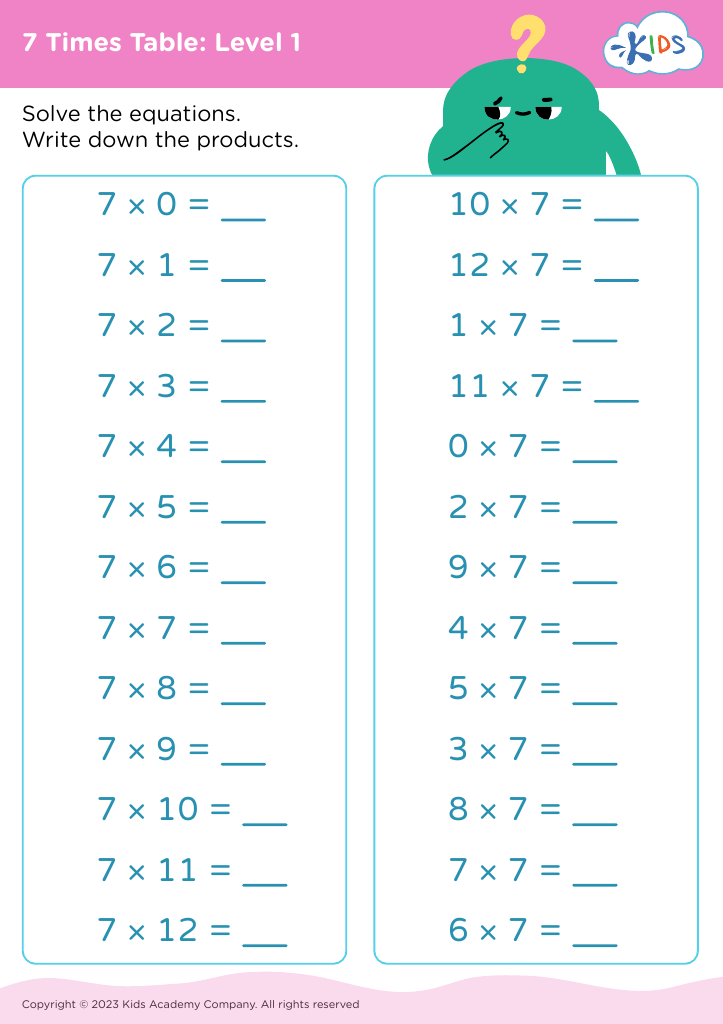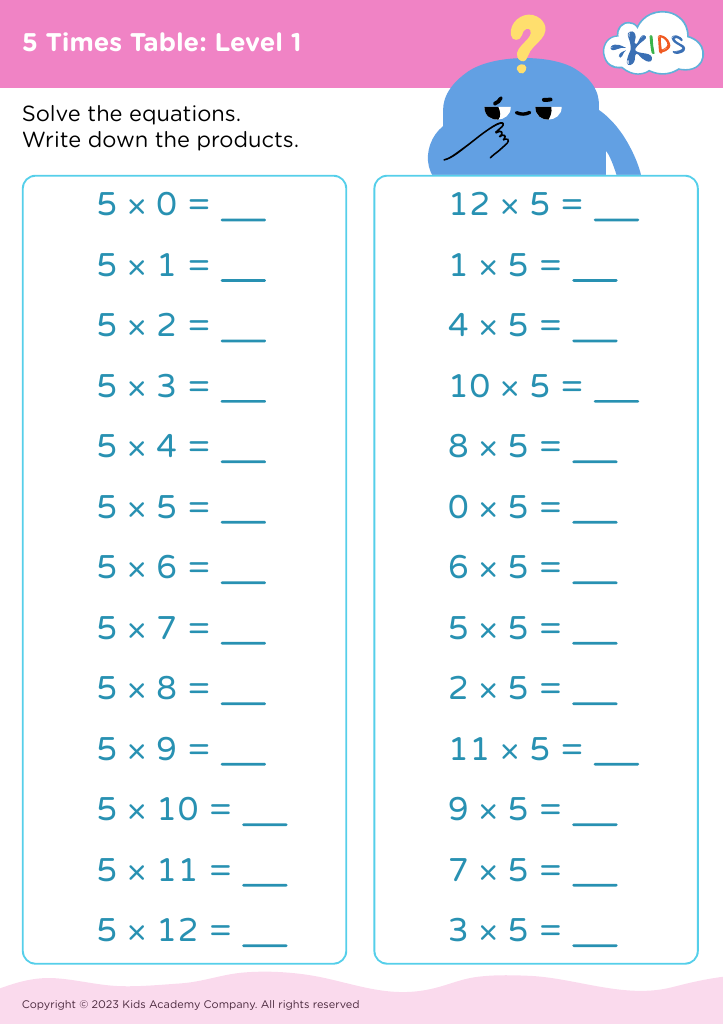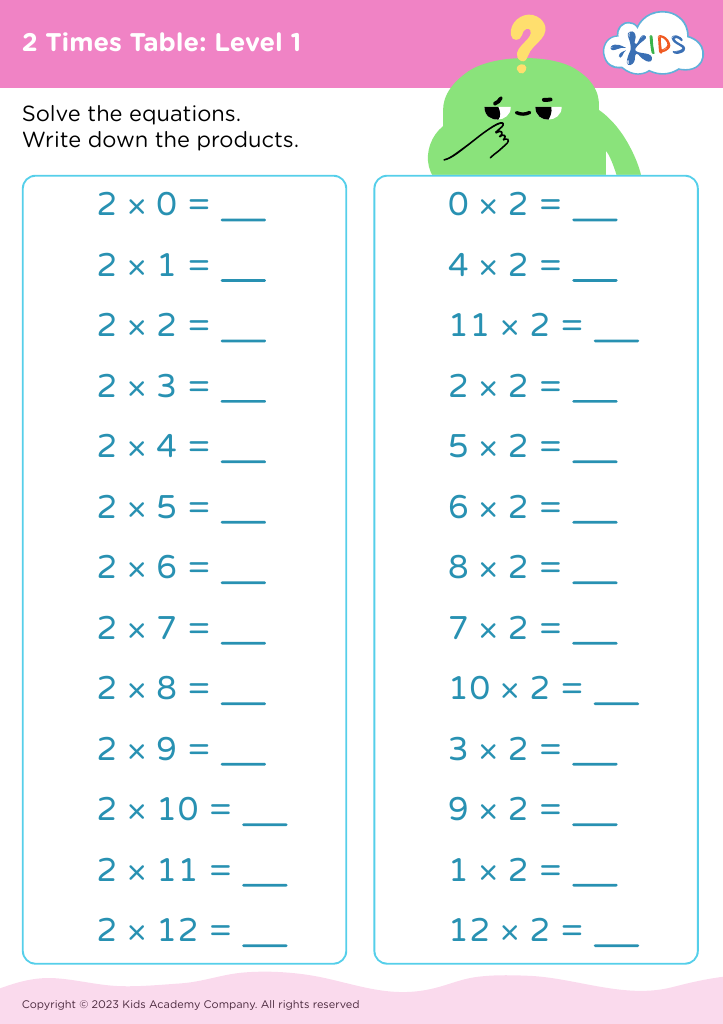Understanding times tables Easy Basic Times Tables up to 12 Worksheets for Ages 7-9
3 filtered results
-
From - To
"Understanding Times Tables: Easy Basic Times Tables up to 12 Worksheets for Ages 7-9" is designed to make mastering multiplication fun and effective. Our printable worksheets are tailored for young learners, offering a step-by-step approach to understanding times tables. Perfect for kids aged 7-9, these resources help build a solid mathematical foundation through engaging exercises and practical examples. Whether your child is a beginner or needs extra practice, our worksheets simplify multiplication concepts, ensuring learning is enjoyable and confidence-boosting. Equip your child with essential math skills through our expertly crafted, easy-to-understand worksheets.
Understanding and mastering basic times tables up to 12 is essential for children aged 7-9 because it lays the critical foundation for higher-level math skills. Initially, memorizing these multiplication facts boosts self-confidence and promotes a positive attitude towards mathematics. When children can recall times tables quickly and accurately, it reduces cognitive load, freeing their minds to tackle more complex problems involving fractions, division, algebra, and geometry.
Moreover, times tables are frequently used in everyday life—such as determining costs, measuring ingredients, or even understanding sports statistics—so mastering them equips children to handle real-world scenarios more effectively. This familiarity also accelerates learning in other academic subjects that rely on mathematical comprehension, such as physics and chemistry.
Teachers and parents should care because fluency in times tables fosters critical thinking and problem-solving skills. It encourages logical patterns recognition, allowing children to see connections between numbers and mathematical concepts, enhancing their analytical abilities. By investing time in ensuring children grasp these fundamental skills, educators and guardians help create a strong academic foundation, leading to lifelong numeracy success and confidence. Prioritizing the easy learning of basic times tables translates to smoother academic progress and greater openness to future learning challenges.
















